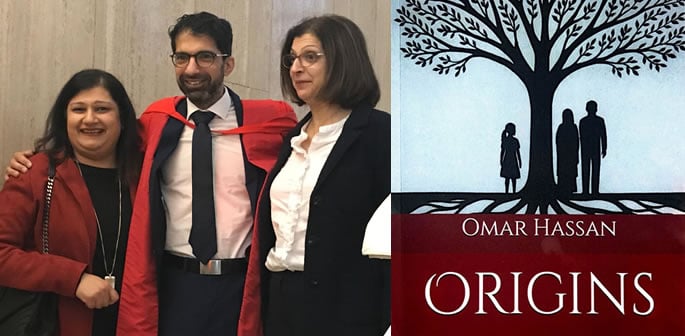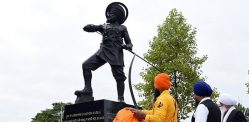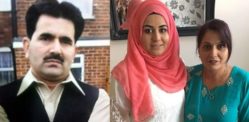“The inspiration to write Origins came from a few different sources."
A new memoir, Origins: The Roots We Stand On, co-written by siblings Tariq, Neelam and Shabnum Aslam, is a powerful tribute to their late mother’s journey from South Asia to post-war Britain.
The book began as a family project after their mother requested a lecture about her life to be given at a farewell party she organised before passing away.
What started as a private act of remembrance soon grew into a work that speaks to a much wider audience.
Written under the pseudonym Omar Hassan, the memoir captures resilience, sacrifice, and cultural dislocation, but it also finds humour and warmth in the everyday chaos of immigrant life.
At its heart, Origins is both a gift to younger generations of South Asians and a reminder of the quiet heroism behind the stories that built modern Britain.
In a chat with DESIblitz, Tariq Aslam delved into the book’s creative process and the wider message it presents to readers.
Honouring a Mother’s Legacy
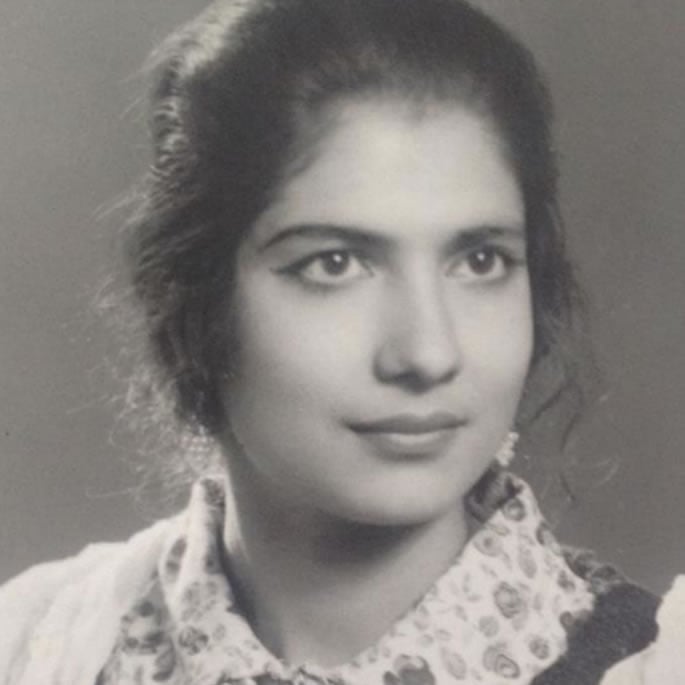
Tariq Aslam explained that the inspiration behind Origins: The Roots We Stand On was deeply personal.
The project began as a way of keeping alive the story of his late mother, whose life had shaped not just her family but the very foundation they stand on.
He explains: “The inspiration to write Origins came from a few different sources.
“After my Mum passed away, we often found ourselves thinking back to the day when we had organised what turned out to be her final wish, to be amongst all her family in a party to celebrate her life.
“Part of that wish was for me to give a lecture on her whole life story.
“When we look back on it all, we think the request for this speech wasn’t just about celebrating her life on the day but it was her way of making sure we all were educated about her life and our roots.”
Aslam later realised it carried a wider resonance:
“We are all used to seeing amazing life stories of courage and determination portrayed on screen in Hollywood films and in best-selling books and we marvel at them whilst perhaps not realising that the journeys our own parents or grandparents made have been equally if not more amazing.”
His mother’s story, marked by resilience and sacrifice, was never told loudly, but its significance endures:
“My Mum and Dad’s journey, marked by immense resilience, sacrifice, grace, as well as incredible characters, was never loudly told.
“But it shaped not just our family, but the entire foundation we stand on. I wanted to capture as much as possible – her voice, her silences, and her strength before it faded into history.”
Piecing Together an Untold History
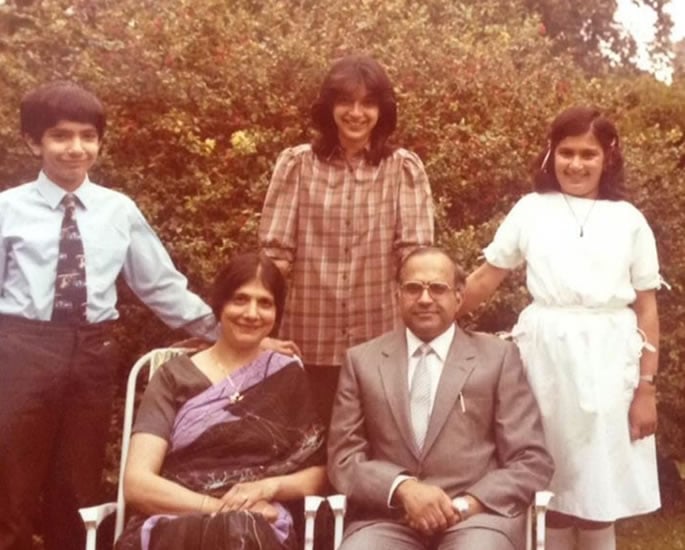
Reconstructing their mother’s immigration journey required a careful blend of memory, research, and imagination.
Aslam says: “It was a long process of delicate excavation. We drew from a mix of oral histories, long conversations over tea, old letters, family photographs, and childhood memories.”
However, the challenge was interpreting the unsaid things.
“There were things she never said outright but which we all understood through her actions. We had to listen not only to her words, but to her silences.”
Historical research provided a crucial frame, researching “the broader socio-political context of 1950s and ’60s Britain to frame her personal experience within a larger, often untold, history”.
Stating that some experiences were particularly difficult to capture, Tariq Aslam says:
“The emotional isolation she endured was perhaps the hardest to articulate.”
“As a young woman uprooted from her village and transplanted into a cold, unfamiliar country, often without language, family, or support, her loneliness must have been immense – but she never spoke of it directly.”
But family memories gave the book its heart:
“We were lucky between us three siblings to have shared memories of events which were often so strong that they aligned perfectly, especially on the most outrageous of events, with each of us able to spur on each other’s memories – all of the stories in the book happened, believe it or not!”
Resilience in the Details
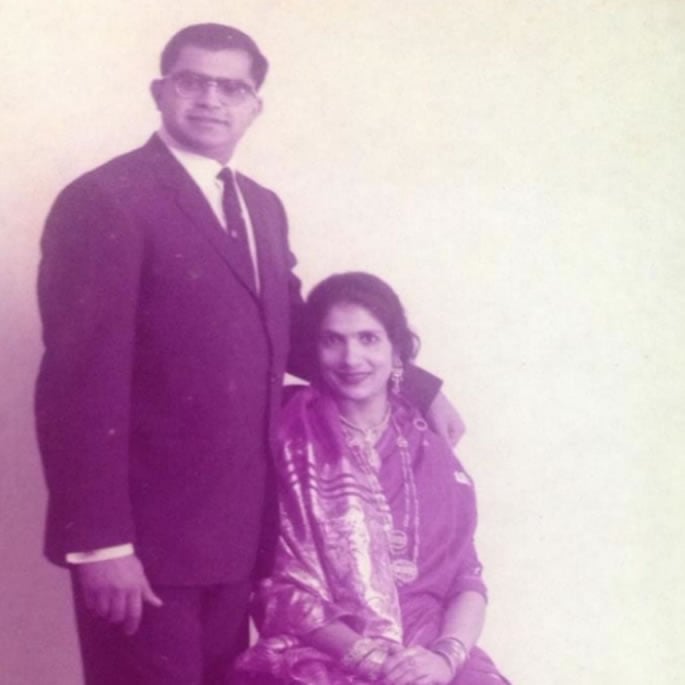
In telling his mother’s story, the book resisted the temptation to frame resilience as grand or dramatic.
Instead, it emerges through small but significant acts.
Aslam says: “Her resilience wasn’t always loud in the book, just as it was something we did not notice enough growing up.
“It was quiet, steady, and often invisible to the outside world.
“We chose, therefore, to show it in the small details: the way she protected her children from racism, the way she learned to navigate a foreign culture while maintaining her own identity, and the unspoken strength with which she endured loss and loneliness.”
Another task was balancing memory with historical accuracy as Aslam admits the exact timelines are not perfect.
Instead, they were adapted to allow for a narrative that could be followed easily, but all the stories did happen.
He adds: “The aim was never to write a book as a historical reference but to provide a glimpse into family experiences and personalities.
“However, it was interesting to also be able to research events and social aspects from reliable historical texts and sources, which added nuance to our memories.”
On what the process of writing the book did, Aslam says:
“Writing Origins deepened our understanding of where we come from – not just geographically, but emotionally, culturally, and spiritually.
“It allowed us to see our mother and father not just as ‘Ameejan and Abajee’ but as complex, courageous people who made impossible choices and bore their consequences with grace.”
Reclaiming the Immigrant Narrative
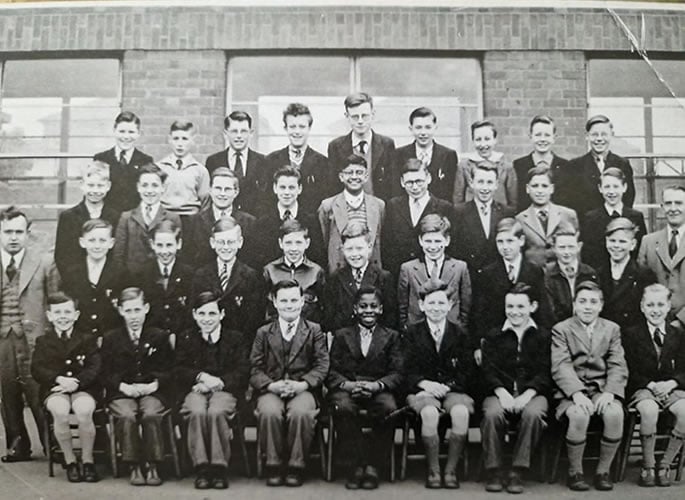
For Tariq Aslam, the book speaks not only to family but also to the wider South Asian diaspora:
“It speaks, I hope, as a bridge. Many of us grew up caught between cultures, often not fully understanding what our parents had endured to give us the lives we now lead.
“This book allows the second and third generation to look back, not just with nostalgia, but with clarity, empathy, and renewed pride.”
He hopes it will challenge the way immigration is currently framed:
“We hope this book helps counter the false narratives that current media portrays about immigration.
“I hope readers understand the part immigrants played in building up post-war Britain to the economic strength it subsequently gained and the dedication and sacrifice that immigrants have made to this nation, such that they should be being celebrated and thanked, rather than being abused in the streets.”
Beyond politics, the story offers a simple but profound human truth.
“Our mother and Father’s story is not just about arriving, it’s about enduring, adapting, and loving in a world that didn’t always love her back.
“It would be good if readers could see immigrants not as statistics or headlines, but as human beings with dreams, fears, and tremendous dignity.”
Aslam believes the blend of warmth and irreverence makes Origins distinct.
He elaborates:
“It is primarily a book about characters, rather than history, who are amazing, often amusing and entertaining.”
“We think it would actually be enjoyable to any readers, irrespective of any South Asian connections, because of the compelling characters, stories and humour of real family life.”
At its heart, the book is a tribute to an extraordinary woman:
“We didn’t set out with a message in mind, but just to tell the story of a woman who was remarkable without ever seeming so and her incredible adventures.”
In writing Origins, the Aslam siblings honoured their late mother, whose strength was as steady as it was understated.
The book reveals not only the courage it took to build a new life in Britain but also the humour and humanity that sustained her along the way.
By weaving family memory with historical context, Origins is a story that speaks to generations of South Asians who continue to live in the space between cultures.
At a time when immigration is so often reduced to statistics and headlines, this memoir reclaims the narrative with dignity and heart.
Above all, it reminds us that the extraordinary journeys of our parents and grandparents are not just personal histories; they are the very foundations on which we stand.
Origins: The Roots We Stand On is out now.




















































